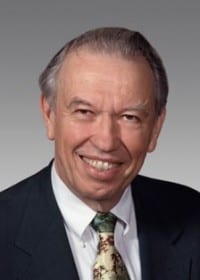Mathematician to Reveal New Discoveries From Lost Notebook
 In 1976, at the University of Wisconsin, George Andrews made a monumental discovery. Hidden in heaps of dusty books, he found Ramanujan’s lost notebook full of mock theta functions. It had been established through correspondence with a friend, prior to Ramanujan’s death, that he was investigating mock theta functions. Only a few had been sent to his friend, G.H. Hardy, but Andrews believed there had to be more. He was proved right when, after finding the 100 page lost notebook, Andrews was able to identify Ramanujan’s mock theta functions.
In 1976, at the University of Wisconsin, George Andrews made a monumental discovery. Hidden in heaps of dusty books, he found Ramanujan’s lost notebook full of mock theta functions. It had been established through correspondence with a friend, prior to Ramanujan’s death, that he was investigating mock theta functions. Only a few had been sent to his friend, G.H. Hardy, but Andrews believed there had to be more. He was proved right when, after finding the 100 page lost notebook, Andrews was able to identify Ramanujan’s mock theta functions.
Only a fifth of the functions within Ramanujan’s lost notebook have been independently discovered by others. All of Ramanujan’s functions had been written down perfectly within the pages, but none had proof or explanations. For the last 30 years, Andrews has dedicated his life to proving each function from the lost notebook. One annotated volume of Ramanujan’s lost notebook worked on by Andrews and others, has already been released. He is working on the second and planning to release a third.
Wednesday, Feb. 19th,
Andrews will be speaking in the College of Sciences auditorium (Room 101)
about new findings from Ramanujan’s lost notebook.
Admission is free and the talk is open to the public.
More information about Dr. Andrews talk can be found here.
George E. Andrews is an Evan Pugh Professor of Mathematics at Penn State University and an expert on the theory of partitions. He has a long-term interest in the work of S. Ramanujan, whose last notebook Andrews unearthed in 1976. He is now collaborating with Bruce Berndt on a series of volumes explaining the brilliant and sometimes puzzling ideas in this notebook.
Andrews has received many awards for his teaching and service to the profession. These awards include the Allegheny Region Distinguished Teaching Award from the MAA, and the 1999 Centennial Award from the Department of Mathematics at the University of Pennsylvania “in recognition of (his) contributions to pure mathematics and mathematics education.” In 2007, he was one of three finalists nation-wide for the Robert Foster Cherry Teaching Award for Great Teaching. In 2008-2009 he was President of the American Mathematical Association.
His research has also received recognition. Andrews was elected to the American Academy of Arts and Sciences in 1997, and to the National Academy of Sciences (USA) in 2003. In 2009, he was selected SIAM Fellow. He holds honorary degrees from the Universities of Parma, Florida, and Waterloo.
